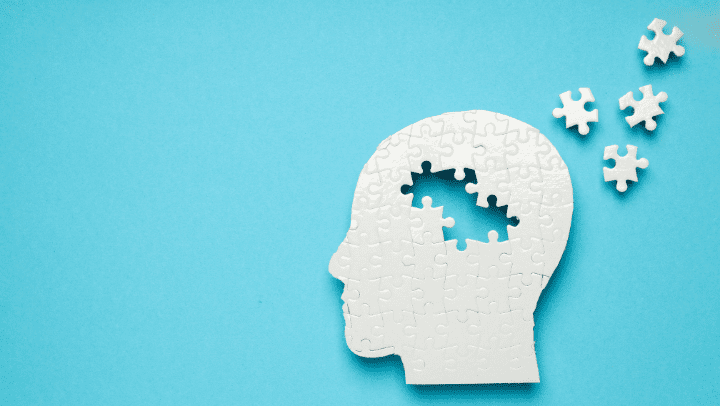
Introduction to Dementia
Dementia encompasses a range of cognitive impairments, affecting millions of individuals worldwide. While it is often associated with memory loss, the reality is far more complex. Dementia is a multifaceted condition that can manifest in various forms and severities, impacting not only memory but also other cognitive functions and behaviors.
As you embark on this journey of understanding dementia, it’s crucial to recognize that each individual’s experience is unique. The symptoms, progression, and impact can vary significantly, making it a highly personalized condition. Nonetheless, gaining insight into the intricacies of dementia can empower you to provide better support and care for those affected.
Types and Stages of Dementia
- Alzheimer’s Disease: This is the most usual form of dementia, known by the buildup of abnormal proteins in the brain, causing the progressive deterioration of cognitive abilities.
- Vascular Dementia: Caused by the blood loss flow to the brain, regularly due to strokes or vascular conditions, this type of dementia can result in impaired reasoning, planning, and problem-solving skills.
- Lewy Body Dementia: Distinguished by the presence of unusual protein deposits in the brain, this type of dementia can lead to fluctuating cognitive abilities, visual hallucinations, and movement disorders.
- Frontotemporal Dementia: This type mainly impacts the frontal and temporal lobes of the brain, causing variations in personality, behavior, and language abilities.
Dementia can also progress through various stages, ranging from mild cognitive impairment to severe dementia. Understanding these stages is crucial for providing appropriate care and support adjusted to the individual’s needs.
Common Symptoms of Dementia
While memory loss is often the most recognized symptom of dementia, the condition can manifest in a multitude of ways. Common symptoms may include:
- Difficulty with memory, particularly short-term memory.
- Challenges with problem-solving, reasoning, and decision-making.
- Disorientation and confusion regarding time, place, or familiar surroundings.
- Struggles with language, including finding the right words or following conversations.
- Impaired visual-spatial abilities affect navigation and perception.
- Personality and behavior changes include increased irritability, apathy, or social withdrawal.
It’s crucial to note that not all individuals with dementia will experience the same symptoms or exhibit them in the same order or severity. The manifestation of symptoms can vary greatly, reflecting the complexity of this condition.
Understanding the Complexity of Dementia
Dementia is a multifaceted condition that extends far beyond memory loss. It encompasses various cognitive, emotional, and behavioral changes that can profoundly impact an individual’s daily life and well-being.
One of the critical complexities of dementia is its progressive nature. As the condition advances, the cognitive impairments can become more severe, affecting multiple aspects of an individual’s functioning. This progression can be unpredictable and vary from person to person, making it challenging to anticipate and plan for future care needs.
Additionally, dementia often coexists with other medical conditions or comorbidities, such as depression, anxiety, or physical disabilities. These concurrent conditions can further complicate the management and care of individuals with dementia, requiring a holistic approach that addresses their diverse needs.
Beyond Memory Loss: Other Cognitive and Behavioral Changes
While memory loss is a prominent symptom, dementia can manifest in other cognitive and behavioral changes. These changes can significantly impact an individual’s ability to perform daily tasks, communicate effectively, and maintain social connections.
- Cognitive Changes:
-
-
- Impaired judgment and decision-making abilities.
- Difficulty with abstract thinking and problem-solving.
- Challenges with attention and concentration.
- Struggles with visual-spatial skills and perception.
-
- Language and Communication Difficulties:
-
-
- Challenges in finding the right words or understanding language.
- Repetitive speech or losing track of conversations.
- Difficulty with reading, writing, or comprehending written materials.
-
- Behavioral and Psychological Changes:
-
- Personality changes, such as increased irritability, apathy, or aggression.
- Anxiety, depression, or mood swings.
- Hallucinations or delusions.
- Wandering or restlessness.
- Changes in sleep patterns or appetite.
These cognitive and behavioral changes can significantly impact an individual’s quality of life and pose unique challenges for caregivers and loved ones. Understanding and recognizing these changes is crucial for providing appropriate support and care tailored to the individual’s needs.
The Impact of Dementia on Daily Life
Dementia can profoundly affect an individual’s ability to perform daily tasks and maintain independence. As the condition progresses, even seemingly simple activities can become increasingly challenging.
- Personal Care: Day-to-day tasks can become difficult or require assistance.
- Household Management: Cooking, cleaning, managing finances, and other household responsibilities may become overwhelming or unsafe.
- Social Engagement: Cognitive and behavioral changes can make maintaining social connections and participating in leisure activities challenging.
- Safety Concerns: Individuals with dementia may be at increased risk of wandering, falls, or other safety hazards, requiring close supervision and appropriate safety measures.
The impact of dementia on day-to-day activities can be profound, not only for the individual but also for their caregivers and loved ones. Adjusting to these changes and finding ways to support and maintain an individual’s independence and quality of life becomes paramount.
Navigating Dementia
Dementia is a multifaceted condition that extends far beyond memory loss. It encompasses various cognitive, behavioral, and functional changes that can profoundly impact an individual’s daily life and well-being. Understanding the complexity of dementia is crucial for providing appropriate care and support. By recognizing the various types, stages, and symptoms, you can better navigate the challenges those living with this condition and their loved ones face.
If you or a loved one is facing the challenges of dementia, consider exploring the best memory care in Wisconsin. Our dedicated team at Heritage Senior Living provides a nurturing environment that adjusts to the unique needs of individuals with dementia. Contact us today at (844) 658-4475 to schedule a tour and learn more about how we can support you on this journey.


